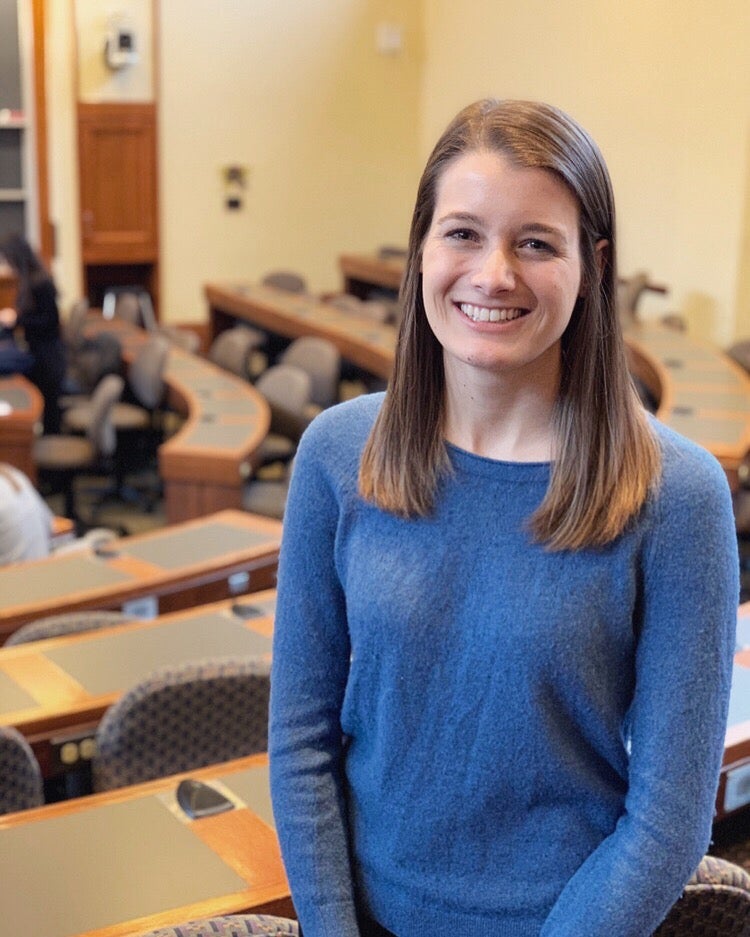
by Kathryn Combs ’20
I spent part of Fall 2019 semester working as an independent clinical intern at Communities for Restorative Justice (C4RJ). I heard about C4RJ during my time in a clinical seminar with Judge Cratsley, who serves on their board. I had been looking into opportunities to do hands-on work during my last year at HLS. When I realized I could plan an independent clinical placement, I immediately thought of C4RJ and contacted Judge Cratsley to speak with him and Professor Lanni about their research, involvement, and thoughts on restorative justice.
I spent the summer of my 2L year at the San Francisco District Attorney’s office, which often refers cases to diversion programs run by nonprofits. I was glad those cases were being diverted but was curious about the process after a case is sent to one. I was very excited to get the chance to work at C4RJ, which is headquartered in Concord but takes cases from all over Western Massachusetts, and to see one of those programs in action. I was C4RJ’s first law student intern, and as such was able to craft my role along with my supervisors in a significant way so that I could be most useful.
Restorative Justice is a multi-layered concept, but in the criminal context, it focuses on the harm done in a criminal action and agreements made among stakeholders to make right that harm. C4RJ refers to “responsible parties” and “impacted parties” to push the boundaries of the criminal court system’s focus on distinct offenders and victims. C4RJ’s process works through referrals from police departments and District Attorney’s offices, and will take any case where the offender is taking responsibility, and the victim is willing for the process to go forward.
While at C4RJ, I primarily worked conducting legal research for the attorneys who make up the majority of the staff. I researched the impact of Massachusetts’ Restorative Justice provisions in the 2018 Crime Bill, analogous statutes in other states, and the requirements state and federal law place on C4RJ regarding volunteers with criminal records themselves.
I also was given the opportunity to participate in a Boston case regarding a serious felony that was referred to C4RJ due to the victim’s wishes to have the case proceed through Restorative Justice rather than the traditional court process. I sat in the “opening circle” for this case. In an opening circle, community members, C4RJ volunteers, the responsible party, the impacted party, and family of the responsible party sit together and discuss the criminal action, along with its effects on all parties and the harm done. The group then drafts a “restorative agreement” in which the responsible party agrees to abide by while working with C4RJ volunteers. This particular opening circle was very powerful, especially given the intense impact the event had had on the victim coupled with the responsible party’s clear regret and desire to apologize.
Having observed that case, been briefed on all open C4RJ cases, and looked at the files regarding past agreements and cases, it was very meaningful to me to see the process of restorative justice as something more concrete than an abstract theory. I was able to see the ways that victims were served by the process, responsible parties were able to own up to what harm had been done without facing overly punitive consequences in court, and how family members and supporters were able to be meaningful participants.
This, combined with my research on states nationwide enacting restorative justice statutes, was a great balance of seeing the human, on-the-ground work of restorative justice combined with the policy and legal realities needed to make restorative justice practicable. I am very glad that other HLS students will begin working at C4RJ this upcoming spring semester; and am grateful to my supervisors at C4RJ for letting me participate, observe, and research the complex and impactful work of their organization.
Filed in: Clinical Student Voices
Tags: Communities for Restorative Justice, John Cratsley, Kathryn Combs
Contact Office of Clinical and Pro Bono Programs
Website:
hls.harvard.edu/clinics
Email:
clinical@law.harvard.edu